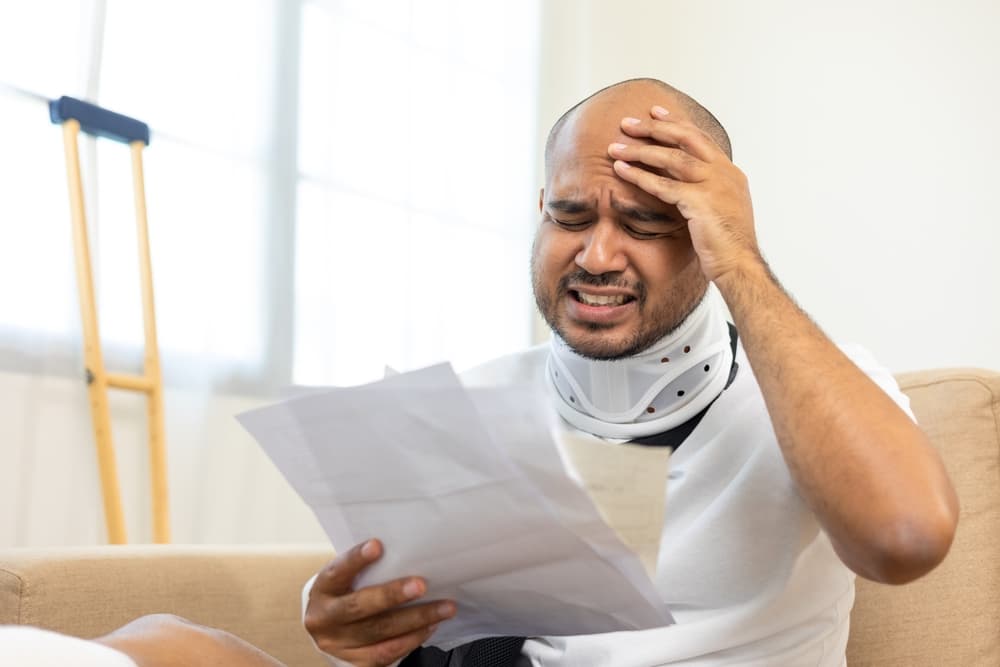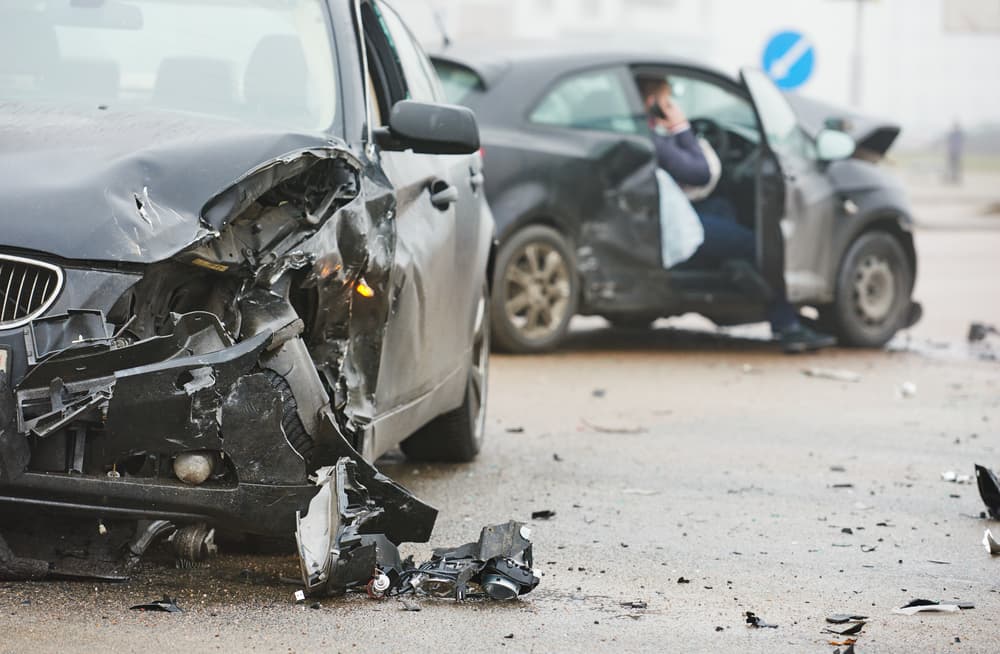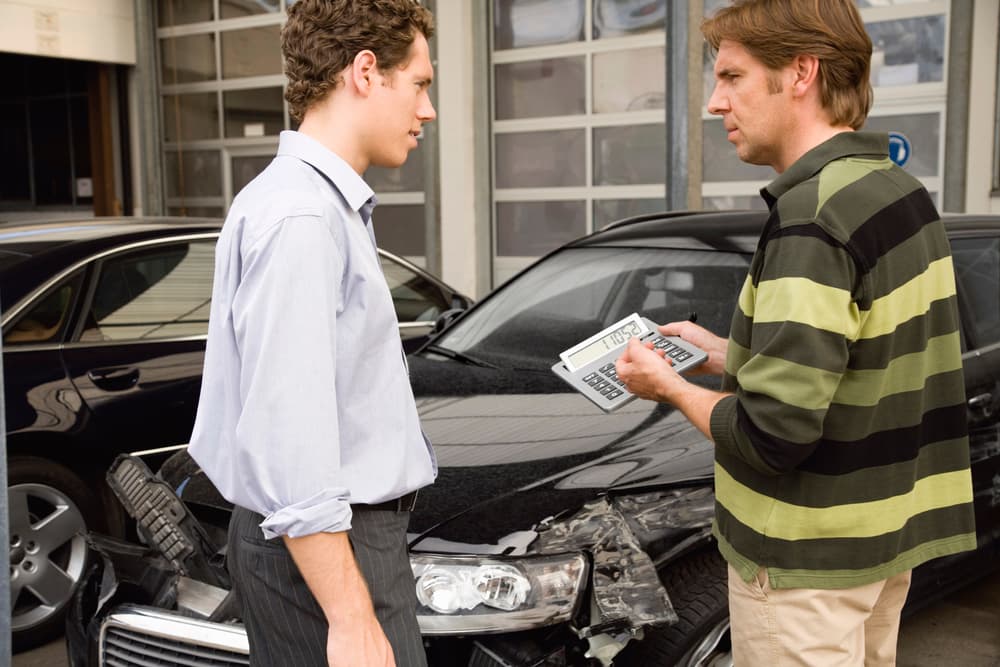Getting into a car accident is always scary and stressful. Even if it injured no one seriously, insurance companies can make the aftermath confusing and overwhelming.
One of the biggest questions people have is how much money they should ask for in a settlement from the insurance company.
The truth is, no single answer applies to every situation. The amount you should request depends on factors related to your specific accident and injuries. However, you can follow some general guidelines. A Fairfax car accident attorney is on your side to help you.
Medical Expenses

One of the biggest parts of any car accident settlement is compensation for your medical bills. This includes expenses you already paid, as well as estimated costs for future treatment.
Common medical costs include:
- Emergency room visits
- Ambulance fees
- Hospital stays
- Surgery
- Doctor appointments
- Medications
- Physical therapy
- Medical equipment like crutches or a wheelchair
Keep detailed records and documentation of all your medical bills and treatments. You'll need this information to calculate the total amount to request for these costs.
Property Damage

In addition to medical expenses, you can also request compensation for any damage done to your vehicle or other property in the accident.
Typical property damage claims include:
- Cost of repairing or replacing your vehicle
- Value of any other property damaged or destroyed, like a laptop, bike, etc.
- Rental car fees while your vehicle was being fixed
Again, make sure to collect estimates, receipts, and other documentation to justify the amount you're asking for to cover these damages.
Lost Income
If your injuries caused you to miss work, you are entitled to recover those lost wages as part of your settlement. This applies to income you've already missed out on, as well as potential future lost earnings if you can’t return to the same job or career.
To calculate lost income amounts, you'll need pay stubs, employment records, and possibly testimony from your employer about your typical earnings. Self-employed individuals may need tax returns and other business records.
Pain and Suffering
Unlike medical bills and property damage with clear dollar amounts, pain and suffering are harder to quantify non-economic damages. This covers the physical and emotional trauma you endured from the accident and your injuries.
Some of the things considered in this category include:
- The severity of your injuries
- Whether your injuries caused permanent disability or disfigurement
- Pain and discomfort from injuries and treatment
- Mental anguish like anxiety, depression, PTSD, etc.
- Loss of enjoyment of life and activities you can no longer participate in
There is no set formula for calculating pain and suffering, but it often ends up being a significant portion of the total settlement amount, possibly even more than your economic damages.
Other Potential Damages
Depending on the specific circumstances, there may be some additional damages you are entitled to recover, including:
Loss of Consortium

Loss of consortium refers to the negative impact the accident and injuries had on your relationship with your spouse. This includes the loss of companionship, affection, intimacy, and the ability to have a normal married life together.
If your injuries have strained your marital relationship - for example, if you are unable to participate in activities you once enjoyed as a couple or provide the same emotional support due to your physical and mental state - your spouse may be able to recover damages for loss of consortium.
This can encompass the loss of your spouse's services, including their share of household chores and responsibilities they can no longer fulfill. It can also account for the rupture of the marital relationship itself caused by the injuries.
To claim loss of consortium damages, strong evidence must be provided of the healthy state of the marriage prior to the accident, as well as documented proof of how the relationship dynamic drastically changed after the injuries were sustained. This could include testimony from counselors, therapists, or loved ones close to the marriage.
Punitive Damages
In most car accident cases, damages are compensatory, meaning they solely intend to compensate the victim for their specific losses and make them whole again after their ordeal.
However, in certain egregious situations where the at-fault driver's behavior was determined to be grossly negligent or intentionally harmful, a court may award punitive damages.
Punitive damages do not compensate the victim but punish the at-fault party for their reckless actions and disincentivize similar conduct from happening again. They are a way for the civil court system to express societal outrage at truly abhorrent behavior.
Some examples where punitive damages could potentially come into play include accidents caused by:
- Excessive speeding
- Drag racing
- Drunk driving
- Road rage incidents
- Intentional ramming of another vehicle
These types of damages are relatively rare in standard car accident cases. To be awarded punitive damages, the burden of proof showing the at-fault driver's malice or complete disregard for others' safety is very high. An experienced car accident attorney would need to make a very strong case proving the egregiousness of the defendant's conduct.
Household Services
Being seriously injured in a car accident doesn't just impact your ability to work and carry on with normal life. It can also make it difficult or impossible to perform regular household tasks and chores, at least temporarily.
As part of your compensatory damages in a settlement, you may recover the costs of hiring outside services to take care of household duties you can no longer handle yourself while recovering, such as:
- House cleaning services
- Landscaping/yard maintenance
- Cooking/meal preparation
- Laundry services
- Home healthcare assistance
- Childcare assistance
To make a claim for household services compensation, you will need documentation from your treating medical providers explaining the extent of your injuries and associated limitations on your activity levels and mobility.
You may need cost estimates or invoices from the third-party services as proof.
The amount awarded for this damage category makes up for your temporary inability to take care of your normal household responsibilities yourself until you have recovered enough to resume those activities or duties.
How Settlements are Calculated

Now that we've gone over the main categories of damages, you may be wondering how an overall settlement value is determined.
Insurance companies have their own internal processes and software to analyze claims and estimate a baseline amount to offer. This is based on your economic damages, with some smaller percentage added for pain and suffering.
However, this initial number is usually on the low end. An experienced car accident lawyer will analyze your case, document all the damages thoroughly, and come up with a higher estimated settlement value to demand based on precedents from similar cases.
From there, your attorney and the insurance company adjuster typically negotiate to reach a final number both sides can agree on.
If a reasonable settlement cannot be reached through negotiation, the case may proceed to trial, where a judge or jury will decide the total amount you are owed after evaluating all the evidence.
You need an attorney who can advocate for the maximum compensation you deserve. While the goal is to reach a fair settlement without going to court, you need someone who will fight for your rights at trial if the insurance company offers an insufficient settlement.
Tips for Getting a Higher Settlement
To give yourself the best chance at getting a higher settlement amount, there are a few things you should do:
Seek Immediate Medical Attention
Even if your injuries seem relatively minor after a car accident, seek medical evaluation and treatment right away. Many injuries, including soft tissue damage and internal injuries, may not be immediately apparent. Delaying medical care could allow those injuries to worsen and become more difficult to treat.
More importantly, seeing a doctor creates official documentation that ties your injuries directly to the accident. This medical evidence will prove the cause and extent of your injuries when pursuing an insurance claim or lawsuit. Without prompt medical records, the insurance company may argue that your injuries were pre-existing or caused by something else.
Visiting an emergency room, urgent care clinic, or your primary doctor shortly after the accident and getting checked out is one of the most important steps you can take to protect your rights to compensation. Follow your doctor's advice regarding medication, testing, and rehabilitation instructions.
Follow Through on All Treatment
After seeking that initial medical attention, follow through on your doctor's entire prescribed treatment plan.
That means:
- Keeping every follow-up appointment for reevaluation
- Undergoing all recommended testing and therapies
- Following instructions for medications, exercises, and activity restrictions
If you stop treatment early or miss appointments, it can create a damaging impression that your injuries weren't actually as serious or debilitating as you claimed. The insurance company will likely try to use gaps in treatment as justification to minimize the amount of compensation they believe you deserve.
By committing to the full treatment regimen recommended by your medical providers, you create a strong paper trail that legitimizes the scope and severity of your injuries. It also helps ensure you heal as fully as possible. This prevents a "failure to mitigate damages" defense from reducing your case's value.
Thoroughly Document Everything
Documentation is absolutely vital when making an injury claim after a car accident.
Save and organize every shred of evidence related to the incident and your damages, including:
- Thorough written accounts of how the accident occurred
- Contact info for any witnesses
- Photographs/videos of the accident scene, vehicle damage, and visible injuries
- All medical bills, records, test results, treatment instructions, and doctor's notes
- Receipts for out-of-pocket expenses related to the accident
- Pay stubs showing income earned both before and after the accident
- Written logs detailing your recovery process and struggles with daily activities
The more documentation you have, the more compelling and credible your account of the accident and damages. It leaves no room for the insurance company to dispute the facts. Keeping meticulous records also demonstrates that you are organized, prepared, and serious about pursuing rightful compensation.
Avoid Damaging Social Media Activity

In the age of social media, people should not post after an accident. Even something that seems harmless could damage your case if taken out of context.
Insurance companies are known to scour injury victims' social media accounts, looking for any posts or photos that could be used to dispute the severity of claimed injuries and losses. For example, if you say your injuries prevent you from running but have a photo of yourself jogging, it could undercut your credibility.
The best practice is to make all social media accounts completely private. Avoid posting any status updates, photos, or other content related to your daily activities and rehabilitation until your case is resolved. You should even use discretion when messaging with friends and family, as those communications could be subject to disclosure.
Never Give Statements Without Legal Representation
When dealing with insurance companies, avoid giving any recorded statements, written accounts, or admitting any degree of fault without first consulting an attorney. Insurance adjusters are trained to ask leading questions aimed at getting you to say something that could jeopardize your ability to recover full compensation.
Even facts that may seem harmless to you could be twisted and taken out of context to reduce the insurer's financial liability. You could inadvertently make comments that violate the legal requirements for filing an injury claim. Politely refuse to answer questions or make any statements until you have proper legal counsel advising you.
An experienced car accident lawyer will prepare you on how to properly provide an account of the accident to the insurance companies. They will ensure you don't say anything that could undermine your case and bargaining position when seeking a settlement.
Call a Car Accident Lawyer Today
If you or a loved one has been injured in a car accident, don't try to handle the insurance claim alone.
An experienced car accident attorney will investigate all the facts, calculate all your damages, deal with the insurance companies for you, negotiate on your behalf, and be fully prepared to take your case to trial if a fair settlement can't be reached.
Don't wait until it's too late. Most states have strict time limits for filing injury claims after an accident. Contact a reputable personal injury lawyer in your area today for your free consultation.

